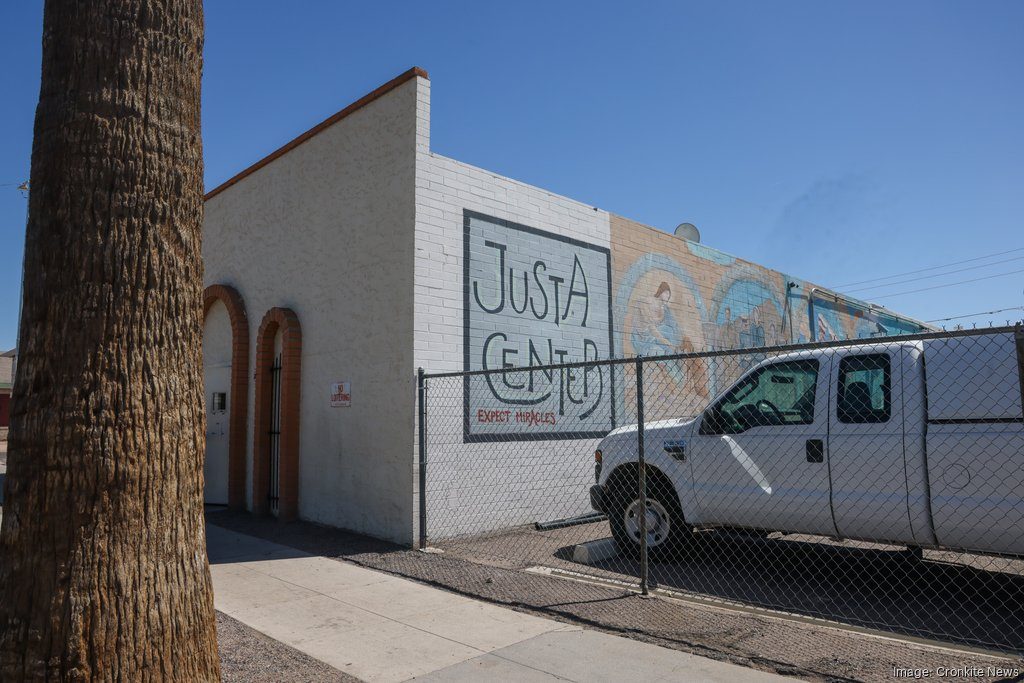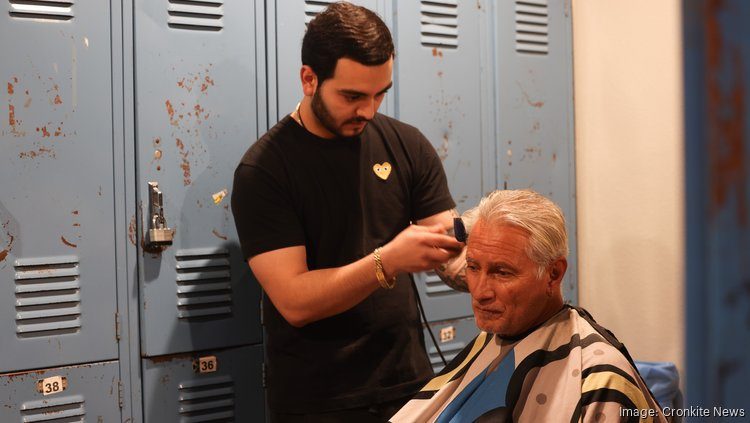As more older adults face homelessness, Arizona governments, organizations look to respond
By John Sanders and Naomi DuBovis
On May 3, 2024

CRYSTAL N. AGUILAR/CRONKITE NEWS
Rachel Milne, director of the Phoenix Office of Homeless Solutions, said older adults are a fast-growing subgroup in the unhoused population, with unique challenges.
“Seniors are typically on a very fixed income. Whether they’re receiving a little bit of assistance, they have what they have, and that number is not going to change,” she said. “So they need to be able to find a unit that will fit within their budget knowing that they’re not anticipating getting raises.”
Milne said in May 2023, the city used $5 million from the American Rescue Plan Act to buy an old Super 8 near Northern Avenue and Interstate 17. Then in March, Sens. Mark Kelly and Kyrsten Sinema announced that $3 million in federal funding would go toward converting the hotel into a permanent housing option for older adults.
Other sources are also financing the project, Milne said, including a grant from Maricopa County and general funds from the city.
Milne said that shelter services are a major focus for the city, which solves homelessness for older adults only in the short term. The hotel conversion project, she said, is meant to be a longer-term solution.
“Shelter doesn’t end homelessness,” she said. “It helps people stabilize, certainly, but we’re really happy to have this housing so folks will have their own leases at this site. This will be their home for as long as they want to and without risk of losing it due to rising rents.”
Kelly and Sinema also announced $850,000 in federal funding for the Justa Center.
The Justa Center in downtown Phoenix has worked for years to assist unhoused older adults in the community. The organization works toward getting older folks a place to go for the day.
Justa Center started in 2006 and provides shower and laundry services, a dayroom, a health clinic and digital skills training. Also, the nonprofit serves two meals a day for most of the year. During the summer months, it serves three meals a day and provides heat relief. The center provides case manager assistance and a director of housing solutions who can help older adults find shelters or housing facilities.
Arizona nonprofits focus on unhoused population
Dean Scheinert, executive director of Justa Center, explained why the organization is unique among nonprofits looking to help an aging unhoused population.
“There are many organizations that provide services to either seniors or people who are experiencing homelessness, but they do a lot of other things. So that (unhoused older adults) is our one and only mission,” Scheinert said.

CRYSTAL N. AGUILAR/CRONKITE NEWS
John Dean, a Justa Center visitor, has lived in Phoenix his whole life and said the center has been valuable in getting relief. Dean said that he became unhoused after his apartment caught fire and burned down.
“I lost a lot of things,” Dean said. “It was awful.”
“I’m just trying to get a place,” Dean said, who spends nights in a motel and relies on Justa Center primarily for its food and housing resources, which have helped him through a difficult process.
“It’s very hard. Very hard. You have nowhere to go, you know? It’s real hard,” Dean said, in reference to the difficulty of being unhoused.
Dean said that he is also receiving assistance from Central Arizona Shelter Services as he looks for permanent housing.
“I’m going to CASS right now,” Dean said on a February morning. “I have a case manager, so she’s working on it.”
Scheinert said there are a number of reasons older adults experience homelessness.
“One is, obviously, the lack of affordable housing. Seniors are often on fixed incomes,” Scheinert said. “When you’re a senior and you’re homeless and you haven’t been diagnosed for many years, they (mental health challenges) become exacerbated. The summer is a big issue – things like that.”
Scheinert said that though awareness surrounding the issue is improving, there has been a lack of “core focus for public policy.”
Scheinert said Justa Center’s approach has served thousands of people and that it has created a close community whose members help each other through the process of gaining housing.
“We’re like a family,” Scheinert said. “We have a small staff – there are 13 people here – some of whom have lived experience … and a lot of people who work here are seniors, so it could be any of us.”
This piece was republished from Phoenix Business Journals.